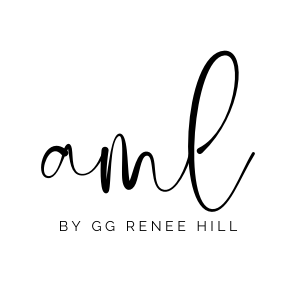how writing keeps your creativity alive and well (even if you’re not a writer)
You might think that you don’t have time to commit to a writing practice right now, but it could be the perfect way to clear the fog and find a path that guides you through life’s transformations.
For most of us, life has shifted dramatically due to the global pandemic. We’re dealing with new physical and mental health challenges. Some of us have been hit directly, whether we’ve gotten sick ourselves or had loved ones who have fallen ill. Daily decisions have become more complex. Our work, school and social environments have changed. Whatever your situation, it’s likely that the pandemic has made your life more complicated than it already was.
And yet your creative heart continues to beat. Your inquisitive mind continues to seek truth and ask questions. Your creative outlets — whether they are hobbies or dreams or professional endeavors — continue to beg for your attention. That book wants to be written. That story wants to be told. That vision wants to come to life.
But how can you indulge in creative exploration in the midst of such widespread uncertainty? How can you make room for self-discovery when you’re already feeling vulnerable and you don’t know what you might dig up or how you’ll deal with it along with everything else that’s going on in the world? And why is it worth the effort? Let’s explore some benefits of keeping your creativity alive through a dedicated writing practice.
writing as creative self-care
In The Artist’s Way, Julia Cameron says, “Working with the morning pages, we begin to sort through the differences between our real feelings, which are often secret, and our official feelings, those on the record for public display.”
The morning pages are three written pages of freestyle thought, done each day to clear your mind and let your inner guidance speak to you. It’s one of the key tools Cameron promotes for the mission of creative recovery and resilience. She says, “The morning pages will teach you to stop judging and just let yourself write. So what if you’re tired, crabby, distracted, stressed? Your artist is a child and it needs to be fed. Morning pages feed your artist child.”
Even if you don’t write a full three pages, through daily journaling you can stay close to your truth, your inner artist child, day in and day out. Close enough to recognize when your thoughts and beliefs aren’t serving you. Close enough to know when you are straying away from your values, hopes and dreams. Stressful thoughts that would normally circle around and around in your head, begin to lose their power when they hit the page. In this way, writing is a self-care practice that supports alignment, so creativity can flourish.
the self in self-expression
As a spiritual being having a human experience, you have an instinctual need and responsibility to create. Some people are creative in drawing, painting or design, while others might take pictures, code computer programs, or organize closets. Cameron says, “Serious art is born from serious play.”
Figuring out what truly matters to you and allowing yourself free rein to explore it will give you the most natural, wonderful sense of fulfillment that makes the noise of the rest of the world fall away. This is not a joy you have to earn through suffering or accomplishment or productivity or approval. Your creativity is a gift you can give to yourself everyday.
Returning to my love of writing when I was feeling lost and disillusioned with life put me back in touch with who I was before the world told me who to be. The process of translating your feelings into words makes you get specific about who you are and what you are experiencing. It helps you get clear on your unique perspective. It creates a safe place where good and bad and right and wrong don’t exist and therefore creativity can thrive.
Self-expression seems scary when you aren’t sure of who you are, where you stand, or what you want. With a consistent writing practice, you begin to see likes, dislikes, needs, and desires revealing themselves and you can feel the relief of welcoming them instead of hiding them. You can open your mind to new ways of being and expressing yourself in the world.
your life is your art
…and your experiences are your creative material. What story are you telling with your life? What unique tapestry can you create with the pieces you have? Start with writing down thoughts, feelings and ideas.
If you move through the inevitable resistance and keep writing consistently, you will begin to see a clearer version of yourself taking shape through the pages. What you discover may be inconvenient and uncomfortable at times, but you are developing a lifelong practice that keeps you in touch with the real you. The payoff is self-awareness and a place to return to, to make sense of things; and then eventually a place to draw inspiration from, for the next version of you that is always becoming.
